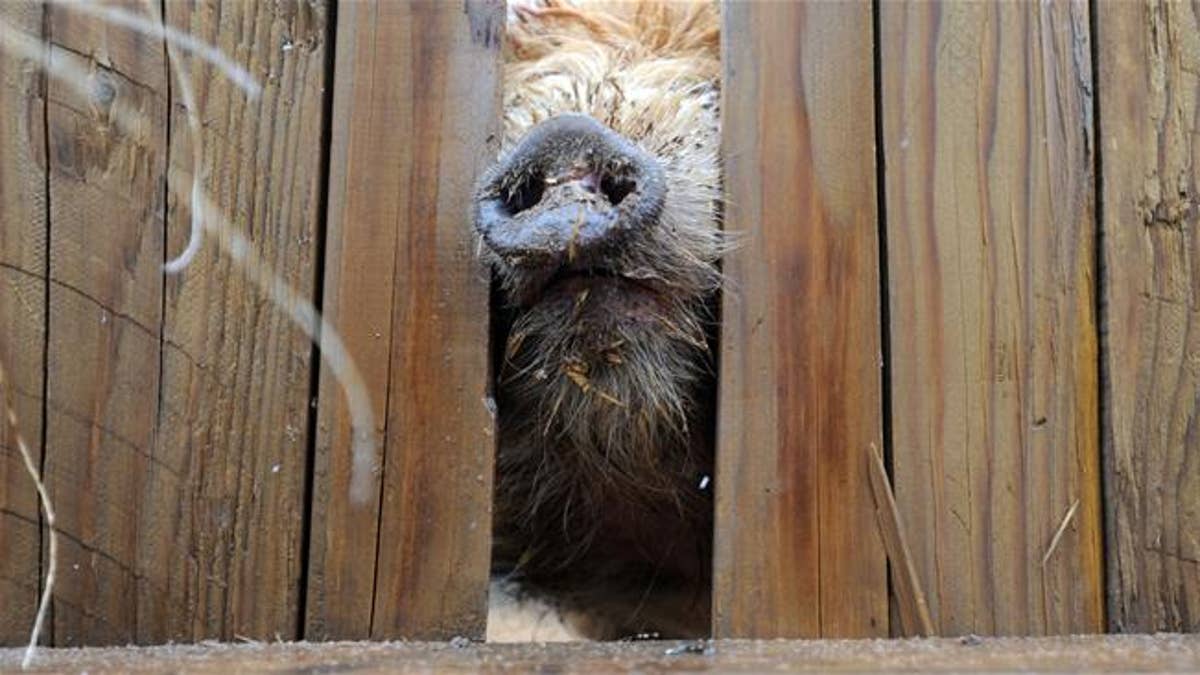
Someday, pigs may grow human organs for transplant. (Joshua Polson/The Greeley Tribune via AP)
A handful of scientists may be blurring the line between human and animal as they work toward creating embryos that are a combination of both, NPR reports.
Their goal is to grow human organs in farm animals for transplant into terminally ill patients—but the work is "ethically charged," the MIT Technology Review points out, and the National Institutes of Health has blocked funding while it considers the implications.
Meanwhile, scientists are pushing ahead with alternative funding. The work itself involves deleting a gene needed to grow a particular organ in, say, a pig embryo.
Human stem cells are then inserted in hope that a human organ, such as a pancreas, will develop instead when the embryo is placed inside a pig's womb.
Researchers are proceeding cautiously, removing the so-called "chimera embryos" for dissection after a few weeks gestation, but concerns remain. One is that the human stem cells (which can become any type of tissue) could create human brain cells in the pigs and change their "cognitive state," per the Technology Review.
Another is that the chimeric pigs could end up with human sperm and eggs, mate with other chimeras, and give birth to a creature that's part-pig, part-human.
"You're getting into unsettling ground that I think is damaging to our sense of humanity," says Stuart Newman, a professor at New York Medical College. More bluntly, a rep from PETA UK tells RT.com that it's "Frankenscience." But Pablo Ross, a UC Davis researcher, tells NPR that ethical considerations are at the forefront.
"We’re doing this for a biomedical purpose," he says. "I don't consider that we're playing God." (These scientists want to create a synthetic human genome.)
This article originally appeared on Newser: Scientists Aim to Grow Human Organs in Farm Animals
More From Newser
